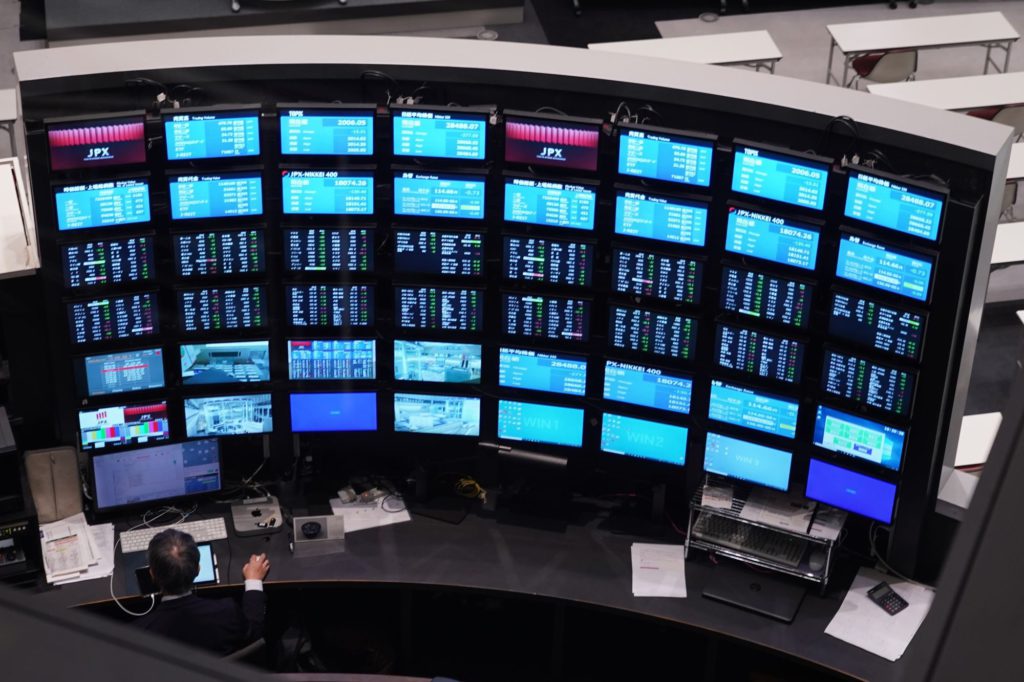US stocks dropped after Federal Reserve officials continued to hammer home the message that they’ll keep raising interest rates to battle inflation, especially after fresh data showed the economy can handle further central-bank tightening.
(Bloomberg) — US stocks dropped after Federal Reserve officials continued to hammer home the message that they’ll keep raising interest rates to battle inflation, especially after fresh data showed the economy can handle further central-bank tightening.
The S&P 500 fell as much as 2.9% after roaring back from a six-day slide on Wednesday. The tech-heavy Nasdaq 100 dropped nnearly 4% after St. Louis Fed President James Bullard didn’t back down from his hawkish stance and said investors have now understood that they can’t escape additional rate hikes in coming months. Tech stocks are vulnerable to higher interest rates, which threaten to diminish the value of companies’ future earnings.
US Treasuries pared earlier losses, with the 10-year yield hovering around 3.75%. UK gilt yields rose after Prime Minister Liz Truss’s defense of unfunded tax cuts that sent markets into turmoil failed to persuade investors.
Investors are contending with threats posed by discordant moves from central banks over the past few days, with Fed officials adamant on further monetary tightening, the Bank of England unveiling a plan to support government debt and authorities in Asia trying to prop up weakening currencies.
“I was actually really surprised by the impact that the Bank of England had on the global market,” said Fiona Cincotta, senior financial markets analyst at City Index. “Yet, it was short-lived, the relief rally. We sort of pushed past that quite quickly and it seems to be back to that narrative of inflation fears, higher-interest-rate fears.”
Fed officials haven’t shied away from warning that more rate-hike pain is yet to come, with Cleveland Fed President Loretta Mester echoing the rhetoric that her colleagues reinforced this week. Better-than-expected 2Q core PCE and personal consumption numbers on Thursday also paved the path for the Fed to stay aggressive. Weekly jobless claims fell to the lowest since April, showing a persistently tight labor market.
Recession concerns persisted as a gap in the government’s two primary measures of US economic activity during the first half of 2022 narrowed. The National Bureau of Economic Research’s Business Cycle Dating Committee uses this metric and other variables to make any recession call.
The Cboe Volatility Index, or VIX, which is Wall Street’s widely followed gauge of fear, has been showing signs of stress this week. It hadn’t pierced 30 since June, but has been there every day this week. Volatility has also crept into the US swap market in recent days.
“The market is now coming to terms with the idea that a recession is almost a given at this point and it’s really making adjustments for that,” said Shawn Snyder, head of investment strategy at Citi US Wealth Management.
Separately, the European Commission announced an eighth package of sanctions that would include a price cap on Russia’s oil exports as Russia vowed to go ahead with the annexation of the parts of Ukraine that its troops currently control after UN-condemned votes, putting the Kremlin on a fresh collision course with the US and its allies.
How much damage is a strong dollar causing? That’s the theme of this week’s MLIV Pulse survey. It’s brief and we don’t collect your name or any contact information. Please click here to share your views.
Key events this week:
- Fed’s Mary Daly speak at an event, Thursday
- China PMI, Friday
- Euro zone CPI, unemployment, Friday
- US consumer income , University of Michigan consumer sentiment, Friday
- Fed’s Lael Brainard and John Williams speak, Friday
Some of the main moves in markets:
Stocks
- The S&P 500 fell 2.5% as of 2:40 p.m. New York time
- The Nasdaq 100 fell 3.5%
- The Dow Jones Industrial Average fell 1.9%
- The MSCI World index rose 1.1%
Currencies
- The Bloomberg Dollar Spot Index fell 0.3%
- The euro rose 0.6% to $0.9795
- The British pound rose 1.7% to $1.1069
- The Japanese yen fell 0.2% to 144.40 per dollar
Cryptocurrencies
- Bitcoin fell 0.9% to $19,393.74
- Ether fell 1% to $1,337.39
Bonds
- The yield on 10-year Treasuries advanced two basis points to 3.75%
- Germany’s 10-year yield advanced six basis points to 2.18%
- Britain’s 10-year yield advanced 13 basis points to 4.14%
Commodities
- West Texas Intermediate crude fell 0.9% to $81.43 a barrel
- Gold futures fell 0.2% to $1,666.50 an ounce
More stories like this are available on bloomberg.com
©2022 Bloomberg L.P.











